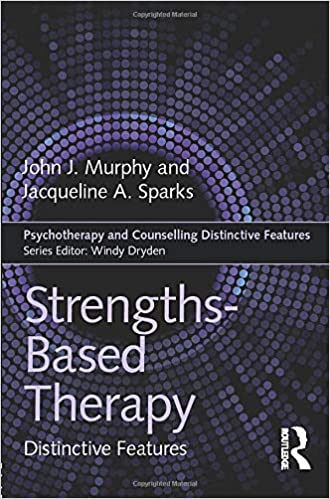Why Client Feedback Is a Strengths-Based Approach

My dear friends and colleagues, Drs. Jacqueline Sparks and John Murphy are our resident experts about using a strengths-based approach in clinical work. This blog post is based on their work and my own reflections about psychotherapy.
A Strengths-Based Approach Operationalized
Collecting client feedback via the Partners for Change Outcome Management System (PCOMS) operationalizes a strengths-based perspective. While the use of client feedback in general is a step toward incorporating client strengths, PCOMS, in particular, embodies a strengths-based approach in four primary ways:
- PCOMS is feasible. Consisting of 4 analog scales, the PCOMS measures require a minute or less to complete—the Outcome Rating Scale (ORS) at the beginning of the session and the Session Rating Scale (SRS) at the end. Lengthier client feedback tools can be intimidating and perceived as wasting valuable meeting time, potentially dampening client participation in therapy. PCOMS’ brevity fosters client engagement and makes it a very practical tool for real-world service environments.
- PCOMS has no predetermined content categories. Instead of detailed, expert-derived checklists, clients simply place a mark on a line indicating their score on 4 broad life domains for the ORS and general aspects of the alliance on the SRS. The open-ended nature of the instruments allows clients to freely reflect on and express their unique experience.
- PCOMS is collaborative. Once clients score the instruments, counselors invite them to discuss them—a key feature that distinguishes PCOMS from other feedback systems. This is a fundamental reversal of the expert/client hierarchy, privileging client interpretations and meanings. The collaborative conversation that follows the client’s ratings provides an idiosyncratic snapshot of the client’s concerns, goals, and preferences.
- PCOMS spotlights strengths as well as distress. Rather than a checklist that assesses only symptoms and problems, the ORS elicits client views of life’s four major domains, where marks to the right reflect strengths, resiliencies, and coping mechanisms. Just like there is a scale on the ORS lower than the others that reflects the presenting concerns, scales that are higher show the aspects of life that going well and can be harvested or recruited to address client goals.

At the same time, PCOMS conforms to core strengths-based principles by:
- Ensuring that client feedback forms the basis and direction of therapeutic dialogue
- Offering a methodology for creating authentic, client-directed therapeutic partnerships
- Helping level the therapeutic hierarchy by privileging clients’ perspectives
- Providing a clinical tool for learning about and incorporating client strengths, perspectives, values, cultural influences, and ideas about change
- Fostering client engagement and strengthening the therapeutic alliance
Learn more about client feedback, strengths-based work, and how to implement PCOMS and Better Outcomes Now at the upcoming all online Training of Trainers Conference (TOT). Learn more.
